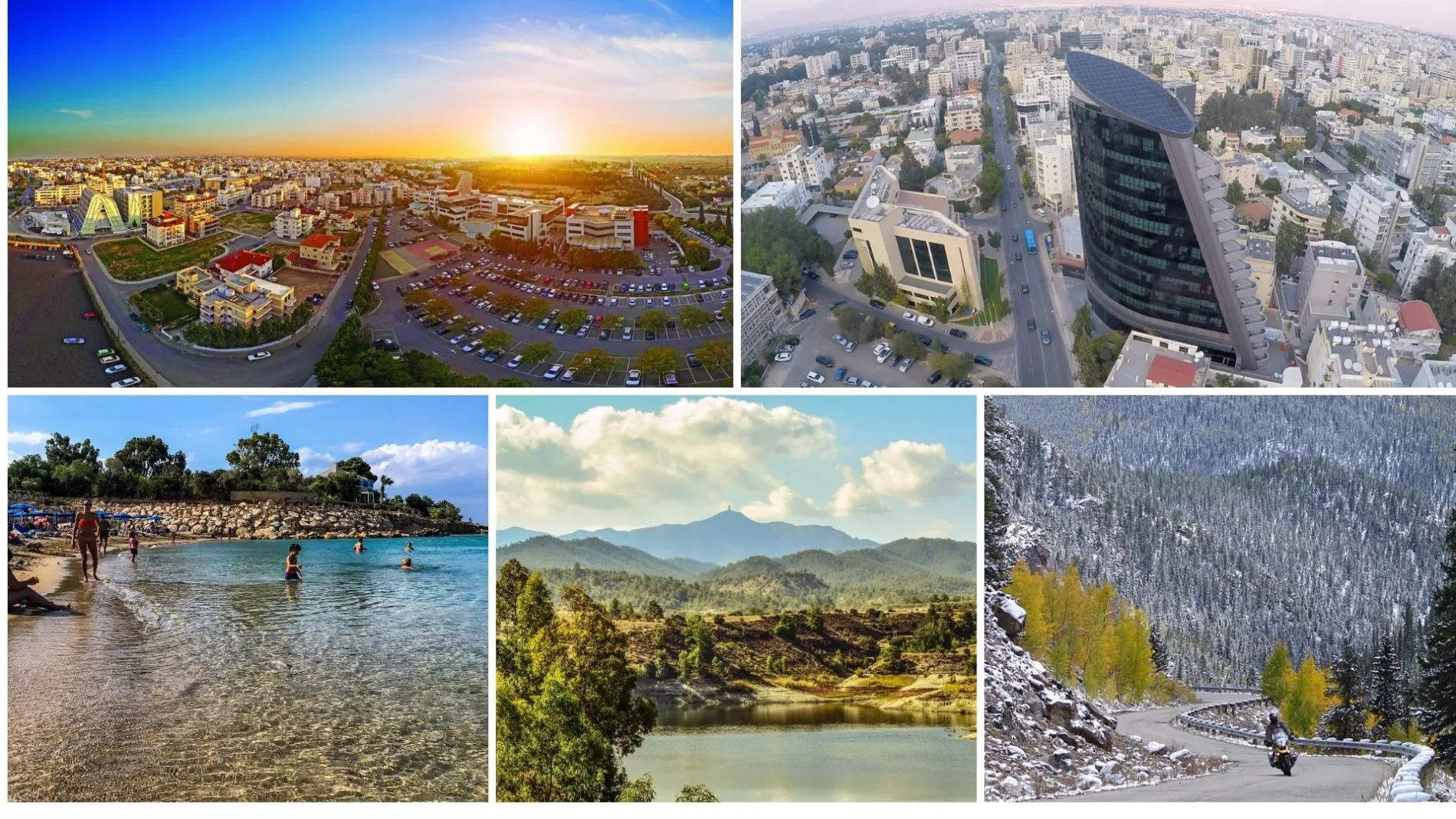Living in Cyprus can be a real joy. With 300 days of sunshine a year, beautiful beaches, delicious food and kind people, you’ll soon agree with a saying they have on the island: “It’s paradise!” Especially for students, Cyprus offers many perks, from being named the safest country in the world for young people, to a low cost of living. But getting settled always means adjusting, so what should you look out for to make your stay here easier?
Here is a short guide to life in Cyprus; the culture, language, lifestyle and some resources that can help.
Language and Getting Around in Cyprus
The main language in Cyprus is Greek, but according to a recent European Commission study, nearly 75 percent of Cypriots speak English, and usually very well. But of course, things can get lost in translation sometimes, and studying a language is one of the best reasons to study abroad. Language learning is a key component to studying at the University of Nicosia Medical School, which provides free Greek lessons to students in its 6 year Doctor of Medicine program, and makes lessons available for students in the 4-year MBBS program as well.
Street signs are generally in Greek and English, and driving is on the left. It is possible to drive in Cyprus if you are over 18, and have an international driving license, or the license from your home country is valid for the class of vehicle you’ll be using. The Cyprus Police website has lots of information on driving and other regulations, like the legal drinking age and alcohol limits, but generally speaking, if you’d like to see some of the island’s many wonderful attractions, some kind of automobile transportation is necessary. There is an intercity bus system that will get you to major hubs, and even some outlying villages, but there can be unlisted changes in schedule, from time to time.
Cyprus Attractions and Places to Go
There are many attractions, both urban and natural, that make Cyprus a wonderful place to live. Our Medical School Student Society (MSSS) regularly plans excursions to see and do some of the amazing things on the island in a student-centered environment, which will take care of much of the logistical process for you. This may include evening activities, day trips, and excursions. Cyprus is home to world-class beaches each with different amenities; some have world-class snorkeling, some are surrounded by restaurants and bars. In fact, Nicosia, where the university is located, was ranked number one in Europe for lifestyle and education by Financial Times Magazine in 2016.
Nicosia boasts many amazing restaurants, bars, cafes, museums, even tattoo parlors and art galleries. Many of these are located centrally, either along the main shopping street in town, Makarios Avenue, or Ledra Street, which is the main eating and walking area inside the Old City’s Venetian walls. The Old City perfectly encapsulates Cyprus’ living blend of historic and modern. The walls were originally built in the 14th century by the Franks, reinforced by the Ottomans, and have recently been restored again, turning areas of the surrounding moat into everything from a bus station that can take you anywhere in the island to a public soccer field and dog park.
History is one of the best reasons to come to Cyprus, and while simply walking around the city, especially the Old City with its 19th century mansions, can feel like stepping back in time, there are museums and galleries all over where you can get a real taste for the rich identity and heritage of this ancient island. If you’re interested in archaeology, the Cyprus Museum houses beautiful artifacts and research facilities for a modest entry fee, and the municipal Leventis Museum, situated inside the city walls, has even more artifacts and gems, largely focused on the history of the city of Nicosia itself, and is free. But of course, the whole island is a museum, with archaeological sites all over the island, from the magnificent ancient city of Kurion to the medieval castle at Kolossi. Just being here is a lesson in ancient-and modern-history.
Cyprus Food, Culture and Living
Cyprus has a proud food culture, with fresh and seasonal produce eaten all year round, and many seasonal cultural and religious festivals. Fresh produce can be bought directly from farmers at the Wednesday and Saturday market along the old walls of Nicosia, but is always available in supermarkets. Groceries are very affordable, and in fact, the cost of living in Cyprus is a big draw for many to to the island; it’s 20% lower than the average in the United States, with rents as much as 50% lower.
Sharing food is also a big part of the culture, whether over a meal or sitting together for a long, chatty cup of coffee. Hosting guests is a valued Cypriot tradition, and you will likely find yourself invited to coffee, dinner, or even a wedding. This might seem a bit intimidating at first, but if you’d like to find an easy way to connect with local traditions, our Host Family program can help you get a taste, and connect you with people who you can turn to for local knowledge.
Overall, the rhythm of life in Cyprus is a bit slower than some might be used to, especially coming from a place like the United States. It responds to weather, seasons, and social activity, and doesn’t have the same fast-paced, formal relationship with time many might be used to. People are relaxed, and there is always time to chat, and taking care of family and personal needs is respected and often supported.
All in all, Cyprus is a joy to visit, and even more so to live in. Finding a routine is important, and once you’ve settled into your studies, you’ll find lots to do to keep you occupied, fed, and happy.

